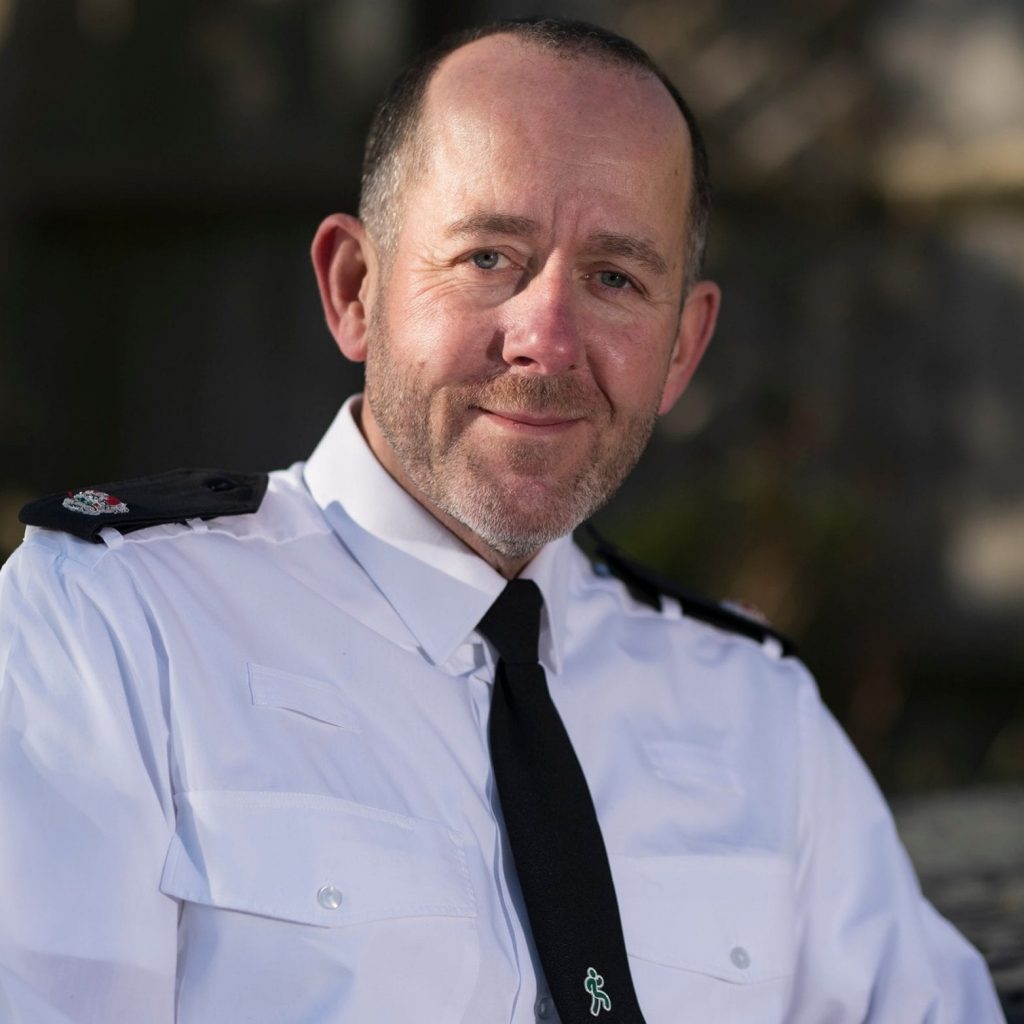by Simon Nelson
President | Disabled Police Association
Welcome to the first of my one page blogs this year which I have been publishing every two months, in the hope they will stimulate thoughts and discussion without taking up too much of your busy time. Please feel free to contribute, challenge and share any comments and ideas about the points raised.

I suppose it would be helpful to first explain what first prompted me to become involved in my local disability staff network around seven years ago, and I suspect my circumstances and motivations will mirror those of others. Like many, I had not considered myself to be ‘disabled’ because that label appeared to ignore everything else I was able to do and on the whole I was able to manage the more challenging days myself – much easier to do I might add for those in more senior positions who have greater flexibility around how we work. That said, being open about my challenges and seeking some reasonable support was liberating and I was keen to work with others with similar lived experiences, to dispel misconceptions and improve equality and inclusion for disabled colleagues, as disability had been historically side-lined as a characteristic. I was lucky to lead our network within a supportive and progressive police force and proud that it has now grown to include in excess of 1,000 members.
There is occasionally some confusion regarding the role of staff networks compared to the Police Federation, Police Superintendents Association and the unions representing police staff. The statutory associations perform important official functions on behalf of their members including providing legal representation, and it is indeed a sad statistic that around 45% of the recent employment tribunals at which the Police Federation have supported police officers relate to claims of disability discrimination. Our diverse staff networks are made up of volunteers with lived experience of having protected characteristics and a source of invaluable and informed information to support the retention, recruitment and development of the diverse workforce our service needs.
Unfortunately there is no consistent funding or support for these volunteers meaning the time they are afforded to do this important work and the resources available to them depends on what is negotiable within 43 different police forces. If I had not been granted half of each week by my Force to support me as a national lead it would have been impossible for me to do it. Unfortunately there are also real inconsistencies in terms of how much support with time and funds is offered to some national protected groups, compared with others and whilst recognising the financial pressures on policing remain consistently high, valuing difference is also consistently referred to as a priority? It is interesting that some Governments have decided to fund their national police association positions, understanding the value those who are also members of their communities could have in informing how those communities are served by their police.
There are occasions when I believe some leaders perceive staff networks to be a barrier, yet in my experience they are usually keen to be part of the solution. Only this week a Force taking part in a national programme chose not to accept a local offer of advice and support, before going on to include incorrect information on a slide which caused avoidable offence. I would argue that one of the reasons some previous diversity strategies did not result in real change was due to insufficient engagement with our diverse networks, to ensure informed delivery plans delivered tangible improvements. As a police service we are fully invested in Independent Advisory Groups to shape how we serve our communities and yet we often choose not to adequately support or invest in the diverse knowledge within our service. This needs to change as the pressures on network volunteers has become intolerable in recent years and particularly some of those with disabilities who are becoming increasingly exhausted and having to step down in the face of multiple, conflicting pressures.
The Diversity Equality and Inclusion in Policing Survey Report, published last August by Durham University revealed some shocking findings. These included 41.8% of officers having been subjected to derogatory comments from colleagues regarding their disability, and 29.6% having experienced jokes about their disability. We need the senior leaders of all 43 forces and Police Chiefs Council to stand with us, agree that is wrong and share our determination to make things better by providing suitable and consistent support to the staff groups representing the statutory protected identities – we are neither antagonistic nor apologetic, we simply want to be part of the change we wish to see in our service. ∎
